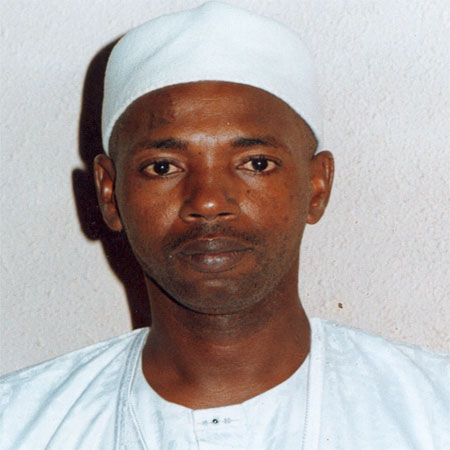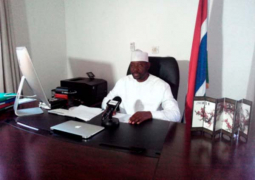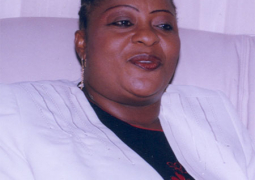
However, Hamat Bah said some parts of the amendment are positive, and will strengthen the internal democracy of the political parties.
The Elections Act, the principal law that governs the conduct of elections in The Gambia, has been amended, once again.
The amendment is scheduled to be tabled on 23 June at the ruling party dominated National Assembly for endorsement.
“The amendment is going to be obstructing prospective candidates from contesting in elections,” Mr Bah told The Point in an exclusive interview on Wednesday at the party’s secretariat on Kairaba Avenue.
With the new amendment, the registration fee for political party has increased from not more than D5,000 to a staggering D1 million.It also obliged parties to be submitting their yearly audited accounts to the Independent Electoral Commission (IEC).
“I am opposed to the audit, because you cannot tell me to give accounts of moneys that you have not given me,” Mr Bah said.“In countries where this is happening, political parties in those countries received funding (subvention) from the state, but that is not happening in The Gambia.”
The NRP leader said if the government gives public money, taxpayers’ money to the political parties then it is obvious that the parties should submit their audited accounts for accountability purposes.
Also, in the amendment, parties have to ‘deposit’ a non-refundable amount of D1 million to have the candidature of their presidential candidate endorsed by the IEC in each presidential election.
Previously, it was D10,000 and parties that get at least 20 per cent of the total vote cast get refund of their deposit.
“Now [with this new amendment] even if you win, you don’t get your money back.So it should not be called a deposit, but payment because a ‘deposit’ is what you pay in anticipation of either completing the payment or getting refund of that money’.Deposit is different from payment.It was deposit before, but now it is a payment,” Mr Bah argued.
“I agree that the D10,000 was minimal; but the way it is increased is unacceptable considering the fact The Gambia is a least developed country and one of the ten poorest countries in the world.So D1 million dalasi is beyond the present level of the country,” he added.
The flag-bearer of the United Front, a coalition of some of the opposition in the 2011 presidential elections, Mr Bah said he knew the deposit was going to be increased, “but our target figure was between D50,000 and D100,000 - but from D10,000 to D1 million was never in our budget, and that increment is unreasonable.”
Just like presidential candidates, parliamentary candidates have to ‘deposit’ D100,000 instead of D5,000 for election.
The NRP leader said this is going to affect his party immediately, because they may not be able to field a candidate for the forthcoming by-election in Lower Saloumn (the parliamentarian of this constituency was fired from the ruling party, and subsequently removed from the National Assembly).
Mr Bah said by the time the by-election is due, the amendment would have come into law and the NRP may not be able to put up a candidate for D100,000 and finance the campaign of the candidate.
“Imagine if we want to put up candidates in all the 48 constituencies of The Gambia in the next election and pay D100,000 for each, you talking of D4.8 million and this is different from our cost of running the election – campaign materials and other things,” he said.
Similarly, mayoral candidates have to also deposit D50,000 instead of D2,500; and councillors D10,000 instead of D1,500.
For Hon. Samba Jallow, NRP’s only National Assembly Member and the minority leader, the IEC should have invited all the stakeholders, especially political parties, for a discussion before coming up with such amendments.
According to the parliamentarian, even though some of the ruling party members at the National Assembly are not in support of the amendments, they will endorse the bill.
“I am 100 per cent sure it will be passed,” he said.
Not all is bad
However, the NRP leader pointed out that some of the amendments are positive; they are meant to strengthen the internal democracy of the political parties.
The new amendment requires all political parties to have secretariat in each administrative region of The Gambia.
“This is positive, because political parties must be seen to be on the ground doing something,” Mr Bah said.
“For us at the NRP, we are already working on having offices in all the regions; we felt it is necessary to have offices in every constituency where people can come to have an insight of what is happening, and what the party is up to.”
Another amendment requires all political parties to hold biennial congress, but the NRP leader said this one also is normal; it is to strengthen the internal democracy of the parties.
“And again a very positive thing is the issue of granting permits for political activities, rallies and anything of that sort.This is positive because we have been victims; we have applied so many times for permit and got rejected [by the police].But now with the IEC in charge, I think they will be reasonable as to granting permit,” he said.
The new amendment also requires the IEC to conduct on-the-spot counting at each polling station and, according to Mr Bah, this is a move in the right direction.



